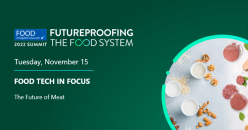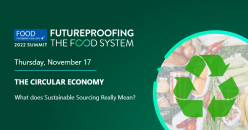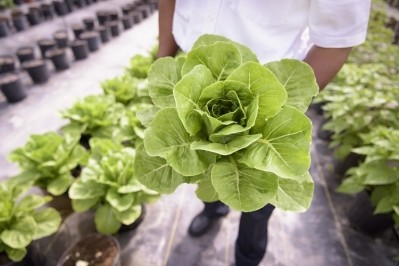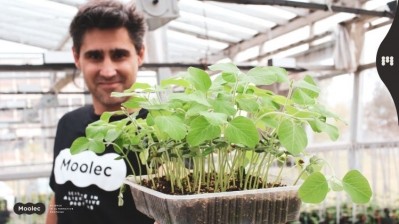Is it more efficient to make ‘animal-free’ proteins in plants or fermentation tanks? Molecular farming co IngredientWerks emerges from stealth mode
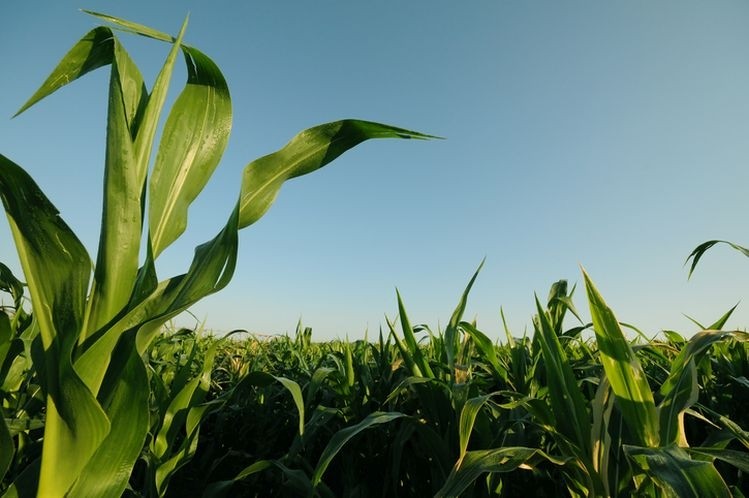
While there are advantages to precision fermentation (genetically engineering microbes such as yeast or fungi to produce ‘animal-free’ proteins in large stainless steel bioreactors) there is already an established infrastructure for growing and processing crops such as corn and soy that molecular farming companies can tap into, says Woburn, Massachusetts-based IngredientWerks.
‘Engineered crop production systems will enable the creation of custom protein ingredients for alternative protein markets at a fraction of the cost of fermentation’
A spinoff from biotech firm AgriVida, which has already commercialized corn expressing high-value enzymes for the animal feed market, IngredientWerks was formed in June 2022 by Matt Plavan (CEO – who came from Arcadia Biosciences), Michael Raab (CTO – from AgriVida), and Jeremy Schley-Johnson (VP Strategy Ops – from AgriVida), and joins a small clutch of startups in the molecular farming arena including Nobell Foods, Moolec Science, Mozza, Pigmentum, PoLoPo and Miruku.
“In the last three years,” Plavan told FoodNavigator-USA, “scientists at AgriVida discovered that they could transform corn to express myoglobin, leghemoglobin and all the casein proteins and so the board got together and said, what's the best way for us to approach the alt protein space, and it was unanimously agreed to spin out, although at the moment we are still 100% owned by AgriVida as a subsidiary.
“The way I describe what we’re doing is developing engineered crop production systems that will enable the creation of custom protein ingredients for the alternative protein markets at a fraction of the cost of fermentation, where there are well-publicized issues of cost, complexity and a lack of capacity.”
‘Even with extensive processing requirements, they still pale in comparison from a CapEx standpoint, to what it takes to stand up a fermentation facility’
But even if it’s cheaper and easier to grow, say, casein proteins in large established food crops where there’s already a market for the other parts of the crop (starch, sweeteners, oil), isn’t there still a significant cost to extract and purify the ‘animal-free’ proteins?
“Even with extensive processing requirements, they still pale in comparison from a CapEx standpoint, to what it takes to stand up a fermentation facility,” claimed Plavan.
“So I think both between the initial startup costs, the capital expenditures associated with fermentation, as well as the ongoing cost per kilogram, we see crop engineering as a significant step function reduction in both the initial and ongoing costs.”
He added: “I think there will be solutions where companies will be able to use the raw fraction of the recombinant protein coming out of the ethanol facility using our corn for example, all the way up to a very high level of purification. It depends on what protein we're talking about, but for high-value proteins such as myoglobin or leghemoglobin, given what we understand to be the fermentation per kilogram costs for those kinds of proteins, we can offer a dramatic savings opportunity by using crop engineering.”
He added: “In the fermentation space, there are a lot of players out there that are expecting that when they scale their product, there will be available capacity at reasonable prices. I think that's where there's a lot of optimistic assumptions.”
IP protection around production of myoglobin, leghemoglobin, and casein proteins in corn
According to Plavan: “We have through provisional patents secured the right to producing leghemoglobin, myoglobin, and casein in corn, so no one else can do that using corn as a host. And corn – which doesn’t have the allergy issues you get with soy [which is being used to express animal-free proteins by some other players in the molecular farming space] - is a phenomenal host for a number of reasons.”
Probably the most obvious one is that “there are ethanol producers everywhere who daily separate the starch and protein from corn, so we have a built-in infrastructure ready to go that is a big part of our value proposition,” said Plavan. “We provide the grain to the ethanol facility, they keep the starch and all the other components; we just take the protein and then process it to whatever level we need to thereafter.”
Asked about IP issues surrounding heme proteins, which Impossible Foods (soy leghemoglobin) and Motif FoodWorks (bovine myoglobin) are currently battling over in court, Plavan claimed: “We don’t see Impossible Foods’ patents as providing any barrier to us in this space.”
The R&D process for molecular farming vs precision fermentation
But what about the R&D process to develop corn varieties that will yield a commercially viable level of myoglobin, for example? Presumably – given microbes grow far more rapidly than plants – the test-and-learn/strain optimization process is something a precision fermentation company can go through far more rapidly than a firm waiting for plants to grow.
Perhaps, said Plavan, but you can test multiple plant varieties at once: “We have grow rooms with 40 to 80 plants with a specific genetic configuration. Once you've transformed the molecule into the corn genome, you're just trying to figure out where in the genome is the best fit for the maximum expression of that protein.
“And so we'll be harvesting every two weeks another set of these plants and looking at the expression levels. AgriVida has been able to get up to 30mg of the protein they're looking for per gram of corn, which is a very high expression level.”
The regulatory pathway: Not the first rodeo
On a more practical level, he added, the team at IngredientWerks – coming from AgriVida – has already had experience of going through the regulatory process to commercialize ingredients from genetically engineered corn.
“AgriVida has already brought three products to the market, they got through the FDA and the USDA. And then lastly, we would submit for GRAS approval, once the biotechnology notification file is cleared, so we understand the process.”
He added: “Since we're able to grow under a permit, this enables us to start testing the plants in the field and working with partners to evaluate the performance of the plants within the first or second year of a development program. So we can be in the market with the ingredients in two to three years and beginning to scale up by the end of year three, which is a fairly quick path to market when you consider what the normal transgenic timelines have been - maybe eight to nine years.”
Labeling and the GMO factor
As for labeling, he said, while the myoglobin, casein proteins, or leghemoglobin are expressed by GM crops, they would not likely require bioengineered labeling in the US “because the end product is likely to not have any detectable modified material in the final product.”
That said, he argued, “I also think anti-GMO sentiment is starting to wane in part because what gene editing or transgenics are being used for these days has more to do with output characteristics that offer a clear consumer benefit, rather than herbicide tolerance, where you’ve got farmers dumping a lot more chemicals on crops because they’re herbicide-tolerant... and that's a legitimate concern, I think.”
He added: “I really like what Impossible Foods is doing on this. They are forthright about using genetic engineering. So I'm pretty optimistic we're going to do okay, in that regard, even if we did have to label [as bioengineered], which I don't think we will.”
The addressable market
But how big is the addressable market IngredientWerks and others in this space are going after with these so-called animal-free proteins?
When it comes to meat and dairy alternatives, claimed Plavan, there is a huge opportunity to elevate products with the taste, nutrition, and functionality of animal proteins, without the ethical and environmental costs.
“I think we're really at an impasse in the adoption curve; they all score pretty low on taste and nutrition and really low on cost.
“But in addition to providing high-value proteins, I think we can also help with genes to improve plant protein functionalization and properties and provide growth factors to the cultivated meat industry, so those are second and third horizons after we've focused on the proteins.”
